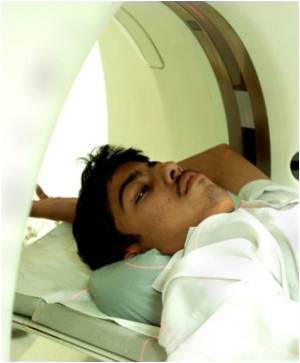Trauma patients are more likely to survive if they arrive at the hospital on the weekend than any during the week, says study.

"Whether patients have an emergent illness or a severe injury, the common denominator is time. Patients must rely on the system to quickly get them to the place that's best prepared to save their lives," says lead author Brendan G. Carr, MD, MS, an assistant professor in the departments of Emergency Medicine and Biostatistics and Epidemiology. "Trauma systems have been designed to maximize rapid access to trauma care, and our results show that the system also offers special protection for patients injured during periods that are known to be connected to worse outcomes among patients with time-sensitive illnesses."
Using data provided by the Pennsylvania Trauma Systems Foundation, Carr and senior author Douglas J. Wiebe, PhD, an assistant professor of Biostatistics and Epidemiology, studied 90,461 patients who were treated from 2004 to 2008 at Pennsylvania's 32 accredited trauma centers. About a quarter of the patients presented to the hospital on weeknights (defined as 6 p.m. to 9 a.m. Monday through Friday) and about 40 percent arrived on weekends (6 p.m. Friday to 9 a.m. on Monday). In addition to the survival-related findings, neither the weekend or night patient group experienced delays for crucial brain or abdominal surgeries often required for trauma patients, compared to weekday patients.
Across the United States, trauma patients are cared for by a regionalized system dictating that they be brought to facilities that meet strict requirements for round-the-clock staffing and capabilities for emergency medicine, radiology, surgery, and post-operative intensive care. Unlike most other medical and surgical specialties in which staffing and resources vary on nights and weekends trauma centers like the Hospital of the University of Pennsylvania are required to have these resources immediately available 24 hours a day, seven days a week, 365 days a year.
In addition to the constant presence of specialty staff, the authors suggest that the greater odds of survival on weekends uncovered in the study may be influenced by hospital scheduling factors. Since elective surgeries are typically not performed over the weekend, there is less competition for practitioners' time, operating rooms, blood bank, pharmacy and other hospital resources perhaps leading to expedited care for trauma patients during those times.
Despite the indication that trauma patients may, overall, be safer during off hours, the findings revealed that both weeknight and weekend presentation was associated with longer intensive care unit stays, and those who came to the hospital on weeknights were more likely to have a longer hospital stay overall than those who were admitted on a weekday. The authors suggest this may also be due to hospital factors not entirely related to the patient's condition, including greater bed availability because few elective admissions and surgeries occur on weekends.
Advertisement
Source-Eurekalert










